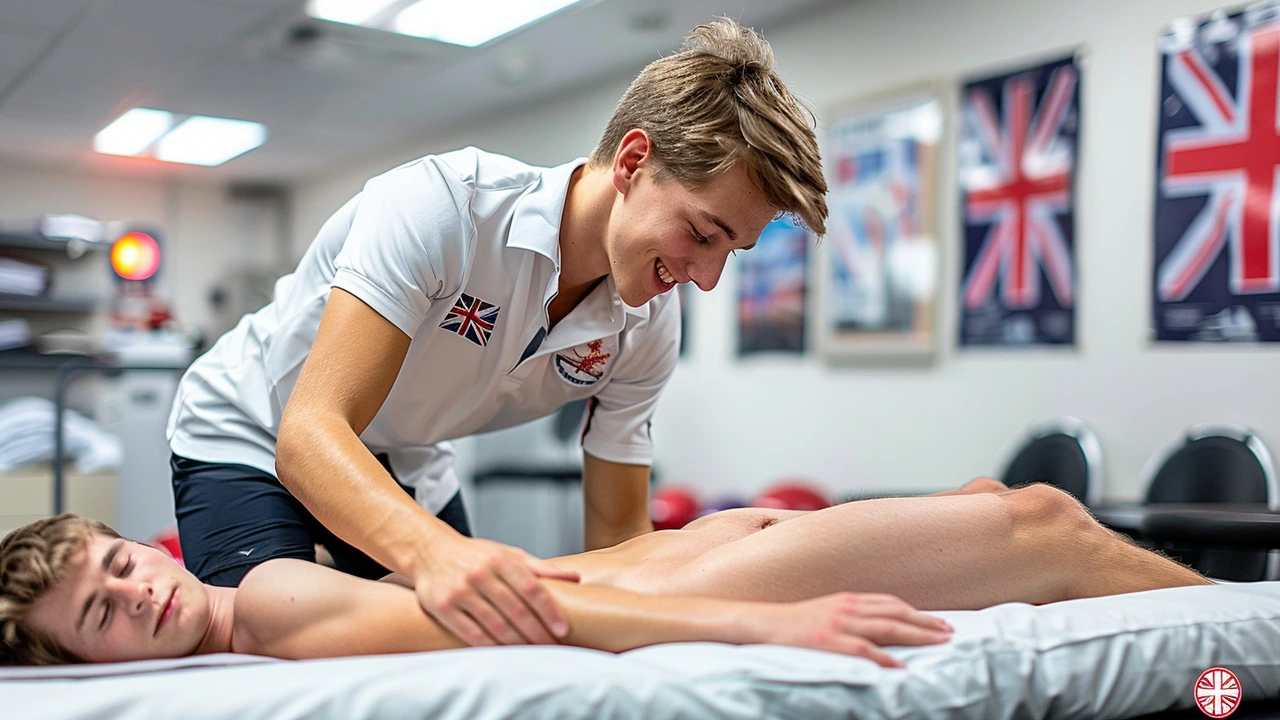Athlete Wellness: Practical Tips to Boost Performance & Recovery
If you train hard, you need a plan that keeps you healthy, sharp, and ready to perform. This page pulls together straightforward, proven ideas you can use today—nutrition basics, recovery methods, sleep fixes, and mental tools that actually help.
Nutrition & Recovery
Start with breakfast that fuels training. Aim for protein + carbs within an hour of waking: eggs with oats, Greek yogurt and fruit, or a smoothie with protein powder and spinach. After workouts, choose a recovery drink or health juice with carbs and protein in a 3:1 ratio to refill glycogen and repair muscles.
Don’t ignore gut health. A healthy gut improves energy, recovery, and even mood. Add fiber-rich foods, fermented items like yogurt or kefir, and plenty of vegetables. If you travel, pack fermented snacks or probiotic-rich drinks to keep your routine steady.
Hydration matters more than caffeine fixes. Sip water throughout the day and include electrolytes when workouts run long or you sweat a lot. Small, regular rehydration beats chugging water all at once.
Mindset, Sleep, and Body Care
Sleep is non-negotiable. Aim for 7–9 hours and keep a bedtime routine: dim lights, cut screens 30–60 minutes before bed, and use calming scents like lavender if that helps you relax. Even a 20-minute nap after heavy training can speed recovery.
Use sports massage and targeted soft-tissue work to stay flexible and reduce injury risk. Regular massage speeds recovery, while short self-massage with a foam roller after workouts helps tight muscles. Book a session when you feel a recurring ache before it turns into a real problem.
Biofeedback and mindfulness help you control stress and recover faster. Simple breath work or a five-minute guided session can lower heart rate and speed muscle repair. Try biofeedback tools if you compete under pressure; they teach you how to calm your body when stakes are high.
Train smarter, not always harder. Track load—minutes, intensity, and soreness—and schedule at least one low-intensity day per week. Swap a hard session for mobility work or light aerobic movement when your body signals fatigue.
Quick checklist you can use after every session: refuel within 60 minutes, hydrate, short cool-down, five minutes of mobility, and 8 hours of sleep target. If something still feels off after a week, see a therapist or sports medic early.
No single trick fixes everything. Combine good food, regular sleep, smart recovery, and stress control and you’ll see steady gains without burning out. Use small, consistent habits and adjust as you learn what your body needs.

Sports Massage: Your Ultimate Guide to Beating Muscle Fatigue
Discover the benefits of sports massage in fighting muscle fatigue, boosting recovery, and enhancing performance. Learn how this therapeutic technique can aid athletes and active individuals. Get insightful tips on choosing the right sports massage and the best practices to incorporate it into your fitness routine.
Read More